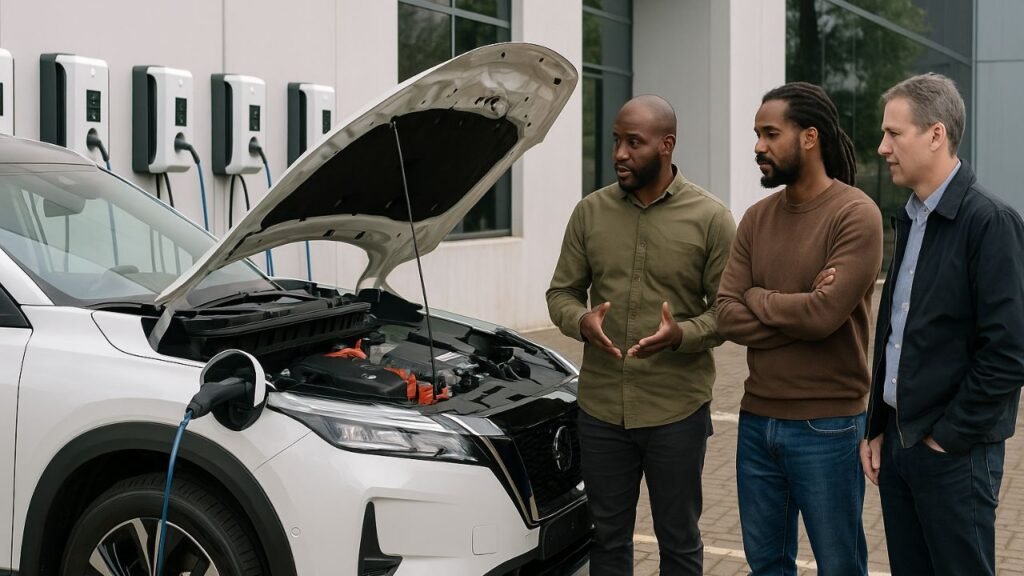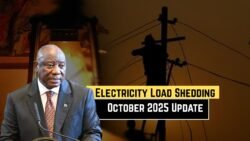Hybrid rollout in South Africa – Nissan is exploring the rollout of hybrid vehicles in South Africa as part of its strategy to support a smoother transition to full electric vehicles (EVs). With the global automotive market undergoing a rapid shift toward sustainable mobility, the company sees hybrids as a practical steppingstone for South African consumers who may not yet be ready to embrace fully electric models due to infrastructure challenges. The country’s limited charging network, high electricity costs, and ongoing load-shedding issues have created hesitancy among buyers. By offering hybrid cars, Nissan hopes to introduce customers to greener technology while still providing the reliability of traditional fuel systems. This approach allows drivers to reduce fuel consumption and emissions without relying entirely on the availability of EV infrastructure. For South Africa, which continues to balance economic growth with environmental commitments, this initiative reflects a significant development in the automotive sector. According to reports, hybrids could help bridge the gap until EV adoption becomes more viable in the region.

Nissan’s Hybrid Strategy for South Africa
Nissan’s decision to prioritize hybrid rollouts in South Africa highlights a realistic recognition of local market conditions. While nations like Norway and China are pushing aggressively for EV dominance, South Africa faces unique challenges, including unstable electricity supply and relatively low EV demand. By providing hybrid options, Nissan is not only addressing the environmental concerns but also adapting to consumer needs. Hybrid vehicles operate on both internal combustion engines and battery-powered motors, allowing flexibility in areas with limited charging infrastructure. This dual system is expected to appeal to middle-class buyers seeking fuel efficiency without the risk of running out of power. Furthermore, hybrids offer immediate benefits such as lower carbon emissions, reduced fuel costs, and a smoother driving experience. Analysts believe that introducing hybrids could increase public confidence in sustainable vehicles and build the foundation for a long-term EV transition.
Economic and Environmental Impact
The rollout of hybrid vehicles could carry significant economic and environmental benefits for South Africa. On the economic side, introducing hybrids can attract new investment into the automotive sector, which remains a cornerstone of the nation’s economy. South Africa already serves as a production hub for many global carmakers, and adding hybrid assembly could boost local manufacturing and create jobs. On the environmental side, hybrids can help reduce the country’s overall carbon footprint, supporting national goals under international climate agreements. With transportation contributing heavily to greenhouse gas emissions, hybrids provide a feasible interim solution. Moreover, the affordability factor plays a key role, as EVs remain costly compared to conventional cars. Hybrids present a middle ground, giving consumers the opportunity to engage in eco-friendly driving without bearing the full financial burden of EV ownership. If widely adopted, this move could mark a turning point in how South Africans perceive sustainable transport.
Challenges Facing Hybrid Adoption
Despite the optimism, the success of Nissan’s hybrid rollout will depend on overcoming several hurdles. One major challenge is consumer awareness, as many buyers remain unfamiliar with the benefits of hybrids and may perceive them as complicated or expensive to maintain. Additionally, South Africa’s fluctuating fuel prices and persistent electricity shortages create a complex energy landscape that can influence consumer decisions. Policymakers also play a crucial role; without clear incentives, such as tax rebates or subsidies, hybrids may remain out of reach for lower-income households. Furthermore, local mechanics and service providers will need training to handle hybrid technology, ensuring maintenance costs do not discourage adoption. These obstacles highlight the importance of a collaborative approach between automakers, the government, and the energy sector. Nissan’s strategy may succeed if it combines product availability with awareness campaigns and government support to make hybrids a mainstream choice.
Future Outlook for EV Transition
Looking ahead, Nissan’s hybrid initiative could act as a critical bridge for South Africa’s eventual shift toward EV dominance. Experts suggest that by introducing hybrids first, automakers can cultivate consumer trust and establish the groundwork for future EV infrastructure expansion. As charging networks improve and renewable energy sources become more accessible, the transition from hybrids to fully electric models will likely accelerate. Government policy, foreign investment, and regional cooperation will also influence the pace of change. For Nissan, the move positions the company as an industry leader willing to adapt its global strategy to local realities. If successful, the rollout could encourage other manufacturers to follow suit, transforming South Africa into a competitive market for both hybrids and EVs. Ultimately, this transitional strategy aligns with the global push toward cleaner transport, while ensuring South African consumers are not left behind in the green mobility revolution.






